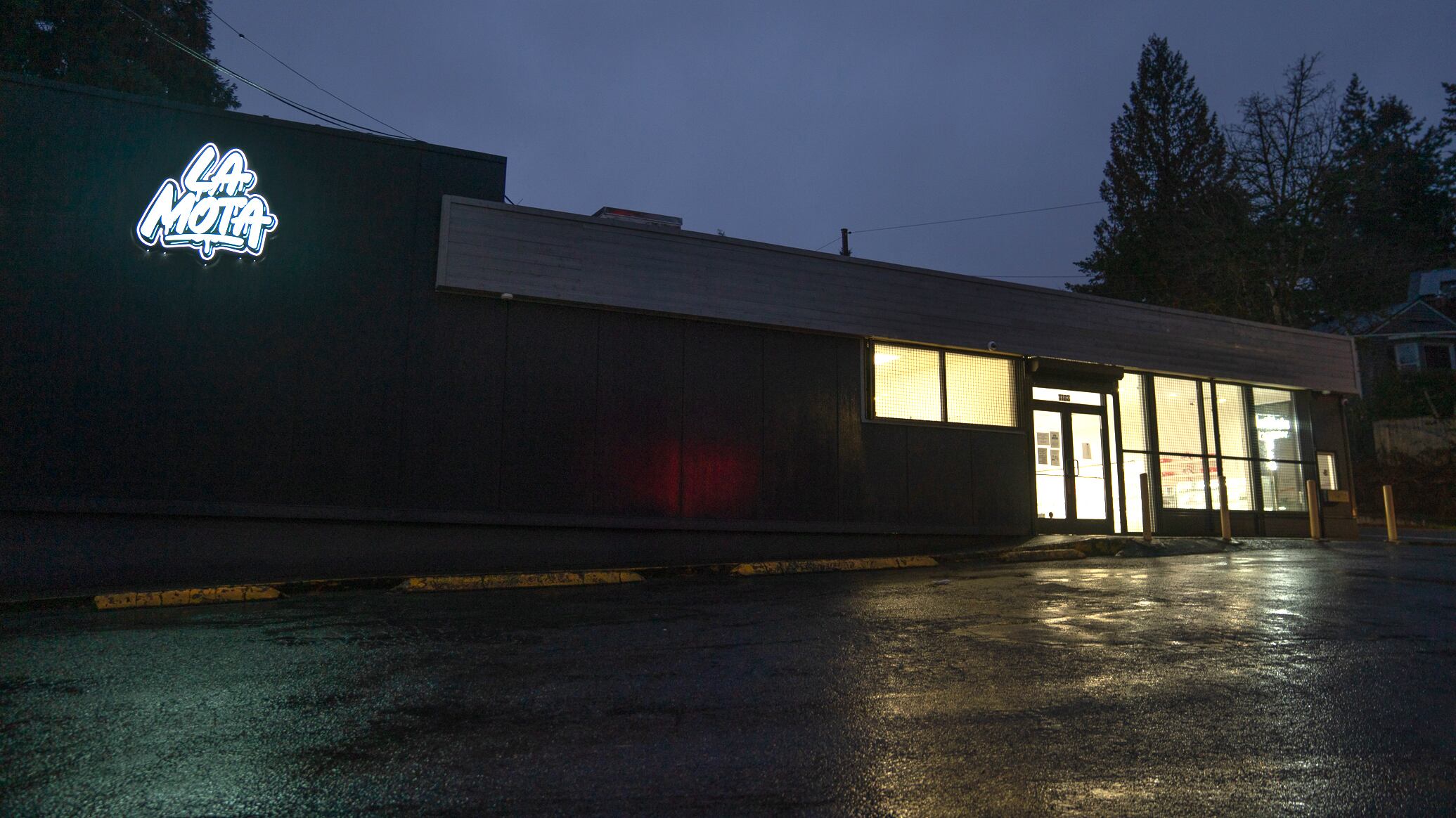Last month, WW published the results of a monthslong investigation into La Mota, the second-largest cannabis dispensary chain in the state. Public records revealed that the co-owners of the chain and the companies they control have been issued more than $3 million in tax liens over the past five years and faced 30 lawsuits in Oregon circuit courts, even as they bankrolled top Democratic politicians (“Strange Budfellows,” March 29).
Records also show that the Oregon Liquor and Cannabis Commission, tasked with overseeing the recreational cannabis industry, did little to regulate La Mota in the past six years. While granting La Mota companies more than 50 licenses, it appears the agency did not examine its tax history, its legal battles or the status of its investors.
Those questions would have raised red flags across the border in Washington state, where the Washington State Liquor and Cannabis Board follows much stricter rules for cannabis companies.
A comparison shows that the Oregon Legislature gives great authority to the OLCC to set rules for companies seeking licenses—but does not require that the agency actually enforce those rules. The Washington State Liquor and Cannabis Board, meanwhile, has much stricter agency rules than those at the OLCC.
The OLCC would not make anyone available to discuss its rules on the record with WW, but in a statement, agency spokesman Mark Pettinger said cannabis regulation is an ever-evolving process.
Below are four policies on which the two states diverge on regulatory oversight of cannabis licensees.
Taxes
Washington: The Washington State Liquor and Cannabis Board collects marijuana taxes monthly and can suspend or cancel a license for nonpayment. In addition, an applicant must be “current in any tax obligations…as an individual or as part of any entity in which they have an ownership interest” to receive a license.
Oregon: The Oregon Department of Revenue collects marijuana sales taxes four times a year. That agency reports to the OLCC which of its cannabis licensees are delinquent on taxes. Just like in Washington, the OLCC can—but doesn’t have to—suspend a license for nonpayment. Laws and agency rules do not mention an applicant’s taxpaying status with the state, either as an individual or entity, as a factor when seeking a new license.
Why that matters: Washington will not grant a new license to anyone who isn’t current on their state taxes. Oregon, meanwhile, granted dozens of licenses to La Mota co-owners Rosa Cazares and Aaron Mitchell even as they, and some of their companies, faced liens for unpaid marijuana and personal income taxes.
Financial Backers
Washington: The cannabis board must “verify source of funds used to acquire the business” and “verify the true party or parties of interest” in each license application. In addition, “the board will conduct a financial and criminal background investigation on all financiers.” State law authorizes the agency to revoke, suspend or cancel a license if it lists “funds that cannot be verified for the acquisition, startup and operation of the business.”
Oregon: State law gives the OLCC the authority to list the names of anyone with “a financial interest in the business.” But no state law or agency rule mentions verification of those investors.
Why that matters: Washington checks the claims of who’s investing; Oregon apparently doesn’t. In La Mota filings provided by the OLCC, three former professional skateboarders are listed on a license application, alongside Mitchell, as managing members. When contacted, one of the individuals said they’d never invested in the business. The spouse of a second said the same. A third did not respond to inquiries. Under Washington’s rules, the agency would have contacted them prior to issuing the license.
Chains
Washington: “Any entity and/or principals within any entity are limited to no more than five retail cannabis licenses.”
Oregon: There is no cap on how many retail licenses one person can hold.
Why that matters: By limiting one person to no more than five retail licensees, Washington effectively barred retail chains. In Oregon, La Mota grew to more than 32 retail shops because the state does not limit how many retail licenses any one person can hold. Smaller companies have alleged that La Mota has used its size to take advantage of vendors.
Upfront Payment
Washington: The state requires upfront payment for all goods purchased: “A cannabis licensee must pay cash for cannabis prior to or at the time of delivery.”
Oregon: Upfront payments aren’t required.
Why that matters: In lawsuits filed against La Mota companies, five vendors alleged unpaid bills. That wouldn’t be possible in Washington, because the state requires that cannabis companies pay prior to or at the time of sale. No payment plans are allowed.
